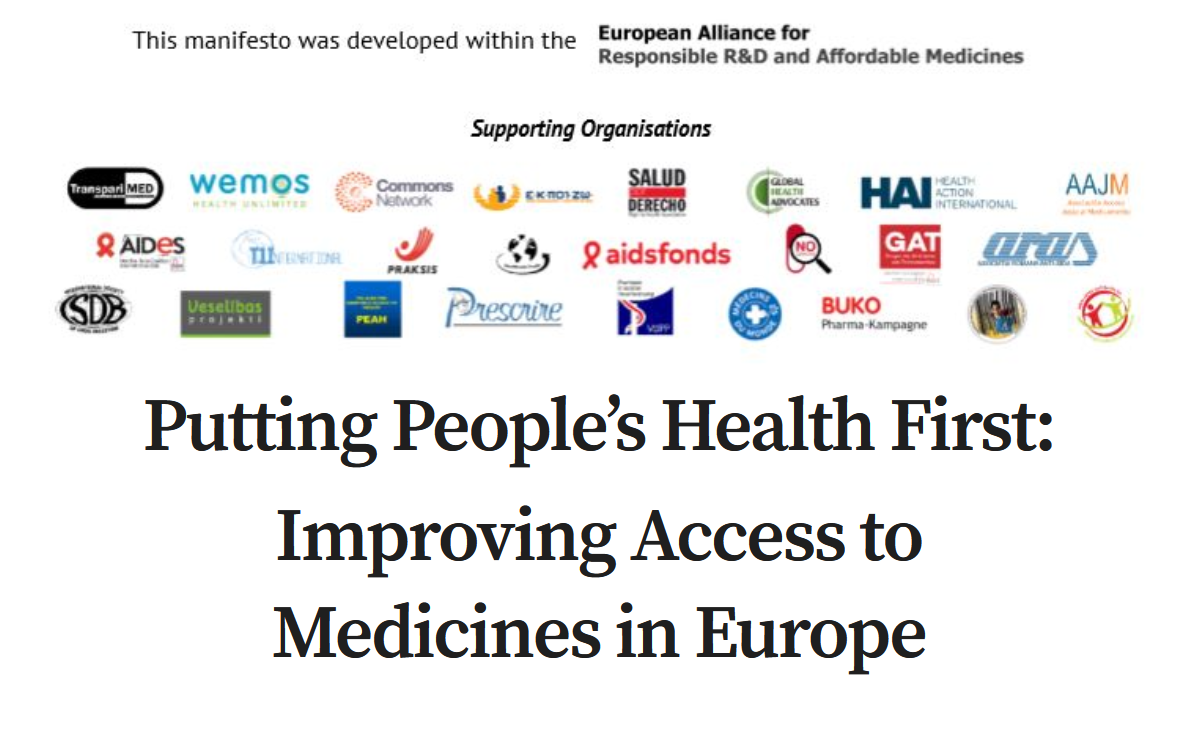Description
Many European countries have been able to provide high standards of healthcare to their citizens, with the core principles of equality, solidarity and universality guiding the design of our health systems. While significant inequalities remain when it comes to access to healthcare both between and within different European Union Member States, we can generally be proud of our health systems especially when compared to the non-inclusive and expensive US model.
Healthcare is a common good fundamental to people’s wellbeing. It is one of our most basic rights and the majority of Europeans want the EU to do more for health. The right to health includes access to timely, acceptable, and affordable health care and medicines of quality. It is the duty of Member States to realize this right in a non-discriminatory manner. Yet, in recent years we have increasingly surrendered the production and pricing of new medicines to an overriding logic of double-digit profits.
Many health systems in the EU are suffering the consequences of unbalanced industrial and intellectual property policies in the pharmaceutical sector, which are almost exclusively geared towards the growth of European economies and maximization of profits rather than towards ensuring people’s access to quality and affordable treatments. In Europe and worldwide, the prices of new medicines are rapidly rising, creating great financial stress on public health systems. As a result, an increasing number of treatments for life-threatening infections and diseases, such as cancer and hepatitis C, are unaffordable for bothindividuals andnational health systems.
This is the result of an ineffective and costly research and development (R&D) system that rewards new medicines with monopolies in the form of patent protection which fail to foster healthy competition and incentivize real innovation. The current system allows companies to set exorbitant prices that drain public health resources which could be used for other purposes. Moreover, it jeopardizes the sustainability of public health care systems in Europe.
Urgent measures should be taken to ensure that governments and citizens have access to, and can afford, the innovative medicines they need. Investing in knowledge sharing and collaborative research processes is a key step. The EU has already made steps in a direction which embraces knowledge sharing and collaboration in the research process and promotes open science and open innovation. Yet this approach needs to be expandedandhappen more explicitly for biomedical R&D.
The upcoming EU elections are an opportunity to put people and their needs at the heart of EU policy making and delivery. This can be an important way of restoring EU citizens’ confidence in the European project demonstrating that the EU delivers on what matters most for its citizens.
Health and R&D policies are critical to the success of the European project. In order to put citizens at the center of policy-making in this area, the following issues must be prioritized on the agenda of the next European Parliament and the new European Commission:
Public Return On Public Investment:
Taxpayers’ money invested into biomedical R&D should ensure public return and societal benefit. EU investments must be driven by public health needs and ensure the accessibility, availability and affordability of the R&D results. Open science, including open data and access to publications, should be adopted as standard practice.
A Sustainable R & D System:
The EU and Member States need to foster healthy competition and incentivize real innovation to create a sustainable system for governments and patients. New R&D models based on open science principles should be explored, such as de-linkage of the incentive to develop medicines from the expectation of high prices R&D cost from the medicine price, innovation inducement prizes, socially responsible licensing and open source research, by means of pilot programs, feasibility studies andnew funding schemes.
Healthy Competition And Trade:
The EU should reform its intellectual property rights (IPR) system ensuring a healthy balance between private interests and the public interest. Competition is crucial to promote innovation: the EU should ensure fair competition by preventing and sanctioning anti-competitive behaviors. Moreover, the EU should refrain from exporting unfair standards of IPR and implement trade policies which support global health.
Real Innovation And Patients’ Safety:
New innovative medicines must prove added therapeutic value compared with existing treatments. High standards of scientific evidence for the marketing authorization of new products must be maintained and promoted. Transparency of clinical trial data and pharmaceutical safety monitoring should be improved. EU cooperation on Health Technology Assessment should be strengthened in line with the highest level of transparency, independence, evidence-based decisions and the absence of any conflicts of interest.
 ☰
☰




